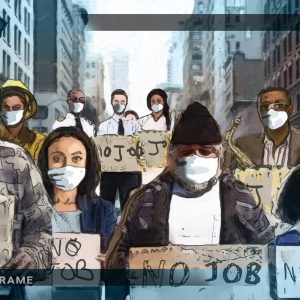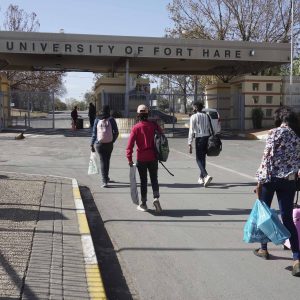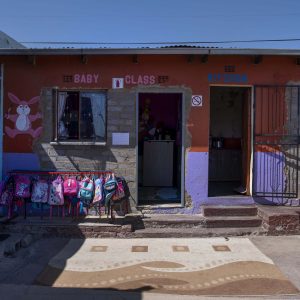Photo Essay | The ‘lockdown generation’
Covid-19 has put matriculants’ lives on hold, from postponed exam rewrites to halted studies and lost first jobs. But South Africa’s youth are determined and innovative, and haven’t lost hope.…
Author:
11 September 2020
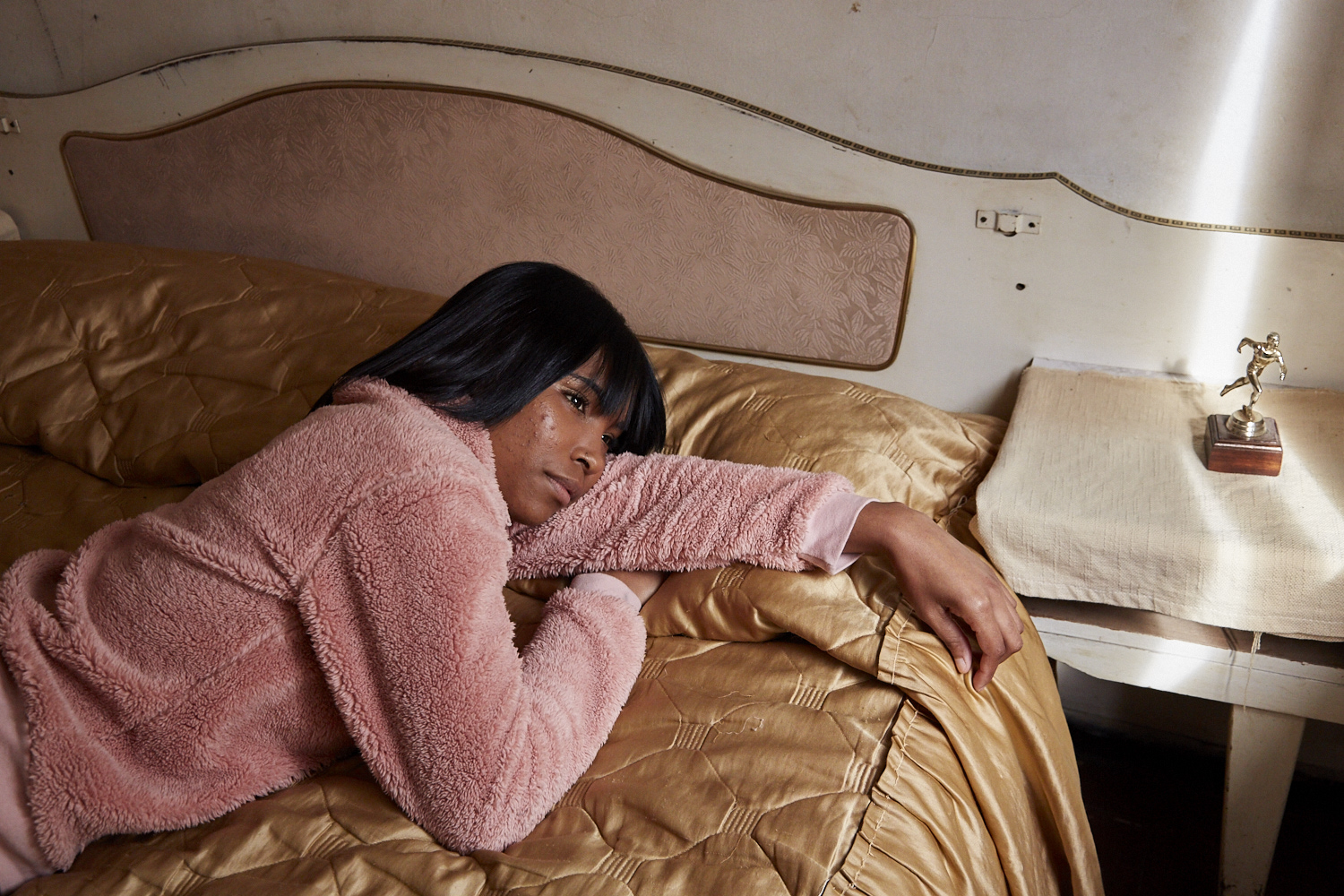
Youth unemployment in South Africa was already at a staggeringly high rate before the coronavirus pandemic hit. At the end of last year, it was 58.1%. And although young people have been disproportionately affected by job losses caused by the Covid-19 economic crisis, they remain the most overlooked group when it comes to support and aid.
Businesses are most likely to lay off young people as they tend to have the least experience. And the youth are largely overlooked when it comes to government support.
This could lead to the emergence of a “lockdown generation” similar to the “lost generation” that emerged from the 2008 global financial crisis, when young people who came of age in the immediate aftermath of the worldwide financial collapse felt the aftershock acutely. But despite this setback, young residents of the Western Cape remain hopeful and see the effects of the lockdown as simply another hurdle to overcome.
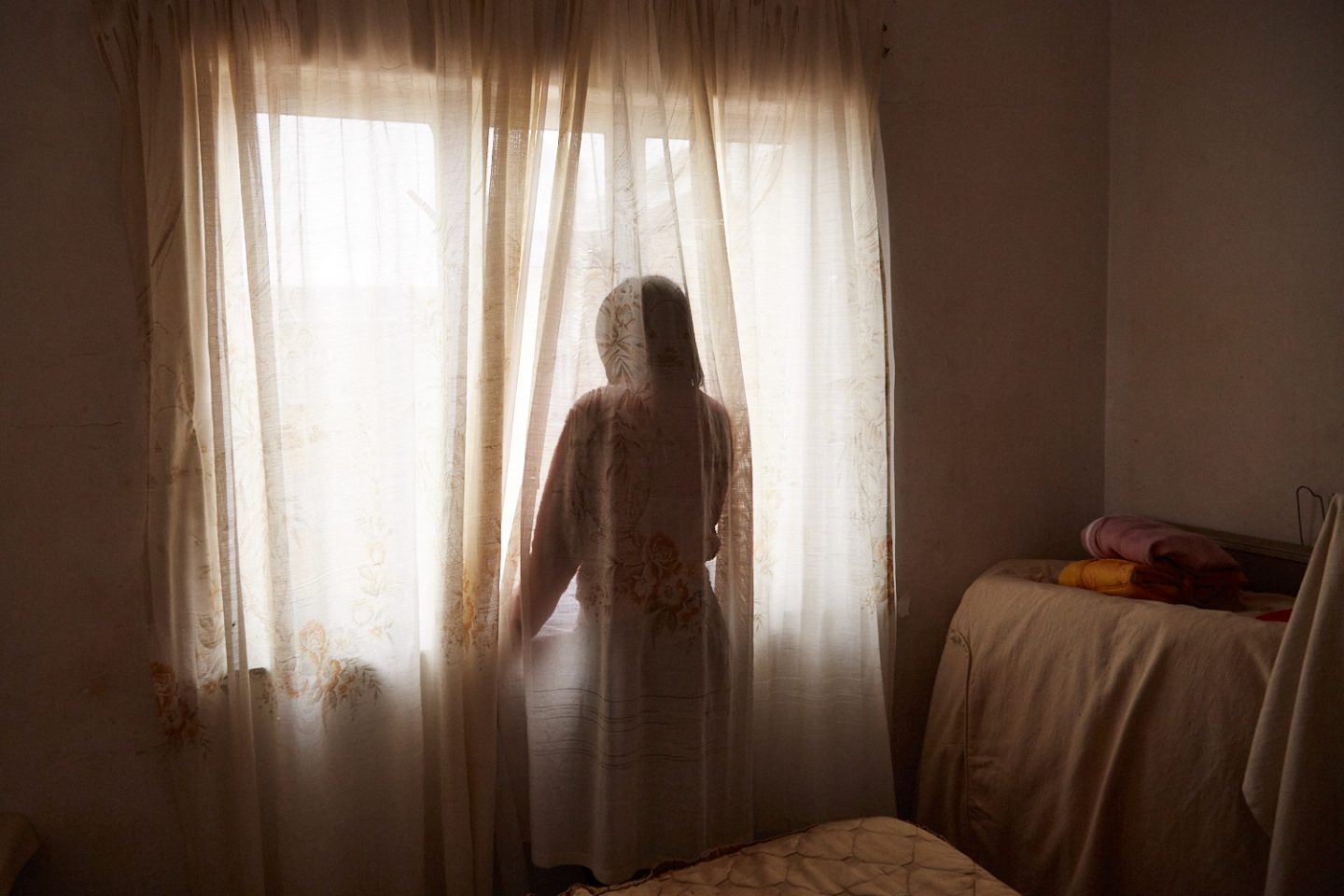
Robin February, 20, from Stellenbosch matriculated from Cloetesville High School in 2019. She lives in a small flat in Cloetesville with her grandmother and her gran’s husband. In February 2020, she began working at the Neethlingshof Estate Wine Tasting Centre as a sales assistant. February is a determined and hard-working young woman and the manager quickly realised her potential.
The company offered to pay for February to do a course so she could work as a tour guide in the wine industry. It was scheduled to start in June, but was put on hold because of the coronavirus pandemic. She started taking driving lessons as this is a requirement for tour guides, but had to put these on hold as she has not earned an income since the government put its Covid-19 lockdown in place on 26 March.
The lack of visitors is having a huge impact on South Africa’s wine and tourism industry and will continue to affect February for the rest of the year as international borders remain closed indefinitely. The government’s ban on the sale of alcohol for several months during the lockdown left February unemployed.
PODCAST:
“Lockdown has brought up a lot of very difficult feelings for me. I lost both my parents 10 years ago and in times like this, I miss them even more. I miss knowing there is someone to turn to when life gets difficult.
“At the moment, I’m thinking about my goals for the rest of the year. I had everything set out, but I need money to achieve my goals and move forward. I have been working since I was 12, doing hair for pocket money. I have worked hard my whole life and I won’t allow circumstances to define me. I feel a sense of responsibility for myself and I have been contributing to the household with food, electricity and whatever we need for the house. I’m not used to having no income as I’ve always worked to make my own money.”
“A lot of grown-ups are not good examples for young people in my community. On any day, you can see men standing on street corners and involved in gangsterism or other criminal activities. If that’s all you see growing up, what more will you aspire to? Turning 18 was a big deal for me. Most girls in my community fall pregnant before age 18.
“I grew up in very difficult circumstances. The lockdown brought up many of those old feelings and I know I have to work even harder to change my future.”


Banza Kapenda, 18, is from the Democratic Republic of the Congo and lives in Wynberg, Cape Town, with his parents, three siblings and a cousin. He matriculated from Wynberg High School in 2019 and although his results were good, he wanted to rewrite his maths exam to improve his mark and apply for a law or education degree.
Pupils were supposed to rewrite in May, but these exams were postponed indefinitely because of the pandemic. This put the remainder of the year on hold for Kapenda.
At the beginning of the year, Kapenda started working at events company Urban Tonic to save for his studies in 2021. “It felt so amazing to get my first paycheck. Just before lockdown started, I stopped working out of choice, because I wanted to stay safe and protect my family from the virus. I haven’t received any wages and I’m not sure if I will be going back to work.
Related article:
“This pandemic will have a negative impact on my academic trajectory, career prospects and social life.
“Young people must be willing to work harder and dedicate themselves. The government needs to focus on us because we are the future of this country. We need more job creation for young people. That will be one of the key things that will help young people get through this pandemic.
“The government also needs to open more bursaries for students from the African continent who live and study in South Africa. I know so many young people from various parts of Africa who have lived in South Africa almost their whole lives, but they are still not given the same opportunities. It’s frustrating.”
Kapenda spends most of his time indoors reading motivational messages. “I hope the rest of the year improves. This year feels like a huge obstacle, but we need to get up again and move forward.”


Blessing Kalonji, 19, from Kensington in Cape Town has a Zambian mother and a Congolese father. She matriculated from Kensington High School in 2019 and started working at a cellphone repair shop. She was excited to get her first job.
“It felt amazing and empowering to step into the adult world. I felt so big and grown-up. When I would see kids going to school I would think, that was me last year.”
Kalonji hasn’t received a salary since the lockdown started in March. Like most young people who work in some of the hardest-hit sectors and informal economy, she is uncertain if she still has a job.
Kalonji contributes financially at home, as do many youth in South Africa. “It felt empowering to earn my own money and it was a good feeling to contribute towards the household. When we didn’t have gas or electricity I would help, because I had the money.
“In my community, you can see grown men who should be working standing on street corners and young girls with babies hanging around. More young people will get trapped in these cycles because of the pandemic. There’s nothing to do. Things seem hopeless. There is a lack of positive role models in our community. As a young person, you need to be strong. You never know who might be looking up to you. Our peers inspire us and we can relate to the energy of young people.”
Kalonji is innovative and adapting to the changing times by looking for opportunities. “Young people should start their own business and become independent. Even before this pandemic, there was never a lot of opportunities. Look at what problems you can solve with your business idea. I started selling sneakers online because people will be more reliant on online shopping because of this pandemic.”


Kluivert Mapah, 19, from Ottery in Cape Town matriculated from Wynberg High School, where he was head boy, in 2019. His family is originally from Zimbabwe, but moved to South Africa nine years ago.
“It felt so great to finish school. You see so many of your friends drop out and not make it, that you feel triumphant when you finally make it.
“What young people need to get through this pandemic is to be on par with technology. Right now, everything is happening online. The pandemic will have a long-term impact on young people, especially because youth employment is mostly focused in the informal sector, like the hospitality sector, and those are the sectors that have been hit hardest.
“Even those who are graduating from university can’t get jobs. Companies are retrenching workers, so what does that mean for young people leaving school and university? It will remain like this for a long time and it will definitely have a huge impact on your career trajectory. You have to find where you fit into society. Don’t be that person who just sits and waits for things to happen. You have to make things happen. There’s a lot of opportunities out there. If you keep pushing, something is gonna budge.
Related article:
“What young people need most is inspiration and guidance. If your parents or close friends are not inspiring you, then you will not be inspired to do something. If we have more role models in the community and people inspiring us, then obviously you can achieve better things. We are lacking our motivation and inspiration.
“I get a lot of motivation from my peers. When I see other young people doing cool things, it motivates me. You don’t want to feel left behind. It’s more relatable. Young people inspire young people. A lot of motivation comes from seeing other young people achieving great things.”
Mapah has been isolating with his parents and two younger siblings during the pandemic. He started working at his father’s business in February, but his work prospects have diminished during the lockdown. He has been taking on more responsibility at home, helping take care of his younger siblings – five-year-old Natalie and Chilavert, 13 – and cooking and cleaning while his parents are at work.


Jenna Mennas, 19, from Woodlands in Mitchells Plain, Cape Town, matriculated from Wynberg High School in 2019. After her final exams, she got a job straight away at Bargain Books, where she worked until she started studying to become a social worker at the University of Cape Town.
“The start of 2020 was such a big change for me, transitioning from high school to university. It was a lot to deal with. After a month at university, in-person classes were stopped as some of the first cases of the coronavirus in Cape Town were reported at the university. It was so weird. I felt like I was just getting used to everything and then we got sent home.”
The university quickly moved learning online and revised the course material. It loaned laptops to students who didn’t own a computer. Mennas and her classmates have been studying at home and may continue to do so for most of the year. But like many students, she finds online learning challenging. “It’s hard to juggle your home situation and focus on your work.”
During the lockdown, Jenna has been confined to her home with six other family members and the increased noise levels have made it difficult to focus.
“Young people need each other right now. This pandemic is affecting our mental health. We need to be there for each other because we are experiencing the same challenges. Although this year has been challenging, I’m adapting to it.”

Angelo Fortuin, 19, from Cloetesville in Stellenbosch matriculated from Cloetesville High School in 2019. He is now studying IT at Boland College. Fortuin has been learning online, but the lack of contact with lecturers is making it difficult to understand the material.
The lack of reliable and affordable internet is another challenge affecting many young people in South Africa, who now have to study online. “Sometimes I have to submit tasks and because I don’t have data, I fall behind. Sometimes I have R20 to buy data, but it’s not enough.
“I’m worried about passing this year because the more work comes through, the more I’m falling behind. I’m not sure what my career future will look like. This might last another two years and I’m not sure what the long-term impact will be. I’m hoping that IT was a good choice because everything is being done online these days.”
Related article:
Fortuin is feeling uncertain about his future. “At the beginning of the year, I felt really confident about my future. But this pandemic has changed that.”
He lives with his mother, stepfather, brother and sister. The lockdown has affected their household income and there is a lot of uncertainty about money as his stepdad is the only one earning an income at the moment.
Like many young people around the world, Fortuin has been missing out on his young adult life. But although there is a lot of uncertainty about his future, he remains optimistic. “This is a hard time and life is not what we thought it would be, but life goes on.”


Stefan Joshua Pitts, 19, from Heathfield in Cape Town matriculated from Wynberg High in 2019.
“2019 was a tough year for me. On 2 July 2019, my father passed away from stage four pancreatic cancer. I was closest to my father and losing him was a tough blow for me. I promised him I would finish school and make him proud. I was really looking forward to my adult life and then this pandemic happened. It’s had a huge impact on my young adult life.
“I wanted to do an internship at an architecture firm this year so that I can work towards my dream of becoming an architect. I’m interested in using design to create buildings that have meaning. For example, design a building that represents the pride of South Africa, or a building that represents unity. I want the building to speak to people and have meaning.
“My life is at a halt right now. I reckon the rest of the year will be very slow for me. It’s incredibly frustrating and scary. This virus has hit us really hard. I’m looking into how I can make a living online right now. Most jobs require some experience and certain qualifications, so this limits your opportunities if you recently graduated from high school. Poorer kids don’t have access to the internet, so that’s another thing holding young people back.
“The future of the youth is looking really blurry right now. This will have a ripple effect. I can’t help but wonder, what am I going to be after all of this?”


Bilqees Gamiet, 20, lives with her mother, grandmother and two nephews in Salt River, Cape Town. She matriculated from Salt River High School in 2019.
Up against the high youth unemployment rate, Gamiet struggled to make the transition from school into the labour market. And then the Covid-19 pandemic brought life as she knew it to a standstill. “I was shocked by this pandemic. It came so quickly.”
It has affected the way she thinks about essential jobs and what she would like to study. “Young people should try and study for essential jobs like doctors, nurses, police and lawyers. That way, if this continues or happens again, you will be guaranteed work. We are seeing what jobs are important, we need healthcare and protection.
Related article:
“A lot of us are unemployed and everybody is just sitting at home. The unemployment rate is way too high and I feel worried about my future. What scares me most is the impact this virus will have on my future and my life. I’m not that scared of getting sick, but more concerned about the impact this will have on my future.”
Missing out on community events has affected Gamiet during this time. “Ramadan wasn’t the same this year. It’s been hard. Eid was terrible, because you couldn’t go to your family. It didn’t feel like Eid, it felt like a normal day.”
The uncertainty around how long the pandemic will last is worrying many South Africans who can’t afford to stay at home and not work. And young people are feeling more pressured to contribute financially towards their households.


Moesha Morkel, 19, from Maitland in Cape Town attended Kensington High School. In 2019, during her final year of high school, she became ill and was diagnosed with a heart problem. During her first round of exams, she had to undergo a heart operation. But despite being unwell, she was determined to finish school. Then, during her final matric exams, her grandfather died the night before she had to write her English paper.
“The day I got my results, I was very disappointed because I failed English. I felt so disappointed in myself because I was the only one of my friends who didn’t pass. But I wasn’t going to allow my circumstances to define my future.”
Morkel was supposed to rewrite her matric English exam in May to complete high school. But because of the pandemic, the date was pushed out indefinitely and Morkel joined the scores of youth whose lives are on hold as they anxiously wait to rewrite subjects to finish school or improve their marks.
Struggling to find work, Morkel started a small beauty business to generate income. She is one of the many young people in South Africa who cannot rely on their parents for financial support after school. “In some ways, the challenges of last year prepared me for everything I have to deal with this year, as I step into the adult world. Because we are young, there is always a plan B or C.”

